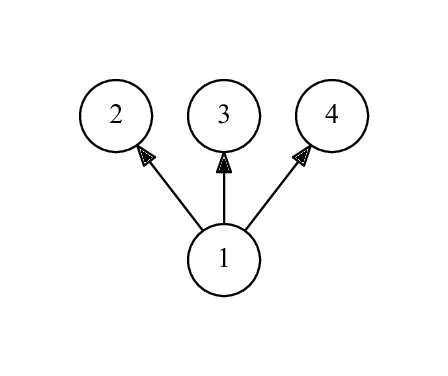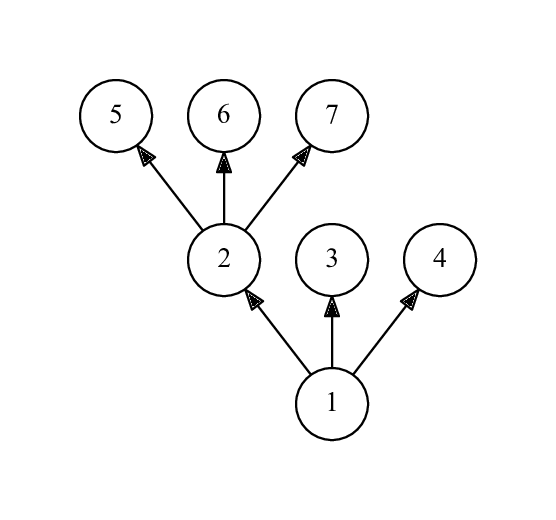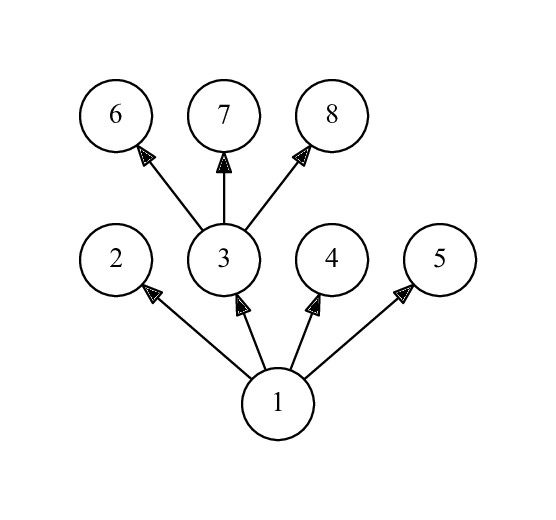| Hello 2018 |
|---|
| Finished |
Consider a rooted tree. A rooted tree has one special vertex called the root. All edges are directed from the root. Vertex u is called a child of vertex v and vertex v is called a parent of vertex u if there exists a directed edge from v to u. A vertex is called a leaf if it doesn't have children and has a parent.
Let's call a rooted tree a spruce if its every non-leaf vertex has at least 3 leaf children. You are given a rooted tree, check whether it's a spruce.
The definition of a rooted tree can be found here.
The first line contains one integer n — the number of vertices in the tree (3 ≤ n ≤ 1 000). Each of the next n - 1 lines contains one integer pi (1 ≤ i ≤ n - 1) — the index of the parent of the i + 1-th vertex (1 ≤ pi ≤ i).
Vertex 1 is the root. It's guaranteed that the root has at least 2 children.
Print "Yes" if the tree is a spruce and "No" otherwise.
4
1
1
1
Yes
7
1
1
1
2
2
2
No
8
1
1
1
1
3
3
3
Yes
The first example:

The second example:

It is not a spruce, because the non-leaf vertex 1 has only 2 leaf children.
The third example:

| Name |
|---|




